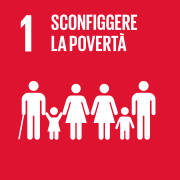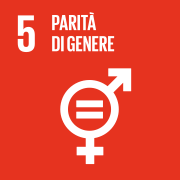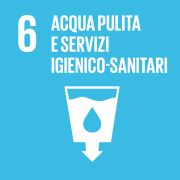
Do Italians see e-commerce as an opportunity or a threat? Are the purchasing platforms available to us today able to enable more sustainable economic models? And then again, how much does one’s opinion on sustainability count when it is one’s wallet that loses out? These questions are answered by “Sustainable Commerce and Retail”, the new research conducted by the Foundation for Digital Sustainability, presented on Tuesday during a dedicated webinar.
The report shows an interesting insight into citizens’ views on the relationship between sustainability, digital and commerce, highlighting how these can vary – sometimes significantly – depending on the urban context in which they are examined.
“Retail is one of the sectors that could gain the most benefits from digital: for this reason, examining the views of Italian citizens on these issues is of paramount importance,” pointed out Stefano Epifani, President of the Foundation for Digital Sustainability. “The research results show that, even in commerce, we talk about sustainability much more than we put it into practice, and that when we talk about it, it is often done in a relative way. There is therefore still a long way to go, and it all depends on a great deal of collective awareness-raising work on digital sustainability issues.”
“Digital technologies represent a key tool to achieve sustainable trade, acting on both economic operators and the consumer,” explained Luciano Gaiotti, Central Director of Policies and Services for the System of Confcommercio. “They enable a more efficient management of resources, guarantee greater transparency of the supply chain, increase consumer awareness and support more responsible and long-lasting consumption models.”
E-commerce: opportunity or threat?
The research highlights, first of all, an important ambivalence in the opinions of Italians regarding the economic viability of e-commerce. More specifically, citizens’ perceptions on the effects of e-commerce on small businesses appear contradictory, and they change depending on how the question is put to them: on the one hand, in fact, 69% of those interviewed are convinced that e-commerce is destined to destroy small shops; on the other hand, however, when confronted with a further element – the adaptability of small businesses – almost the same percentage of citizens (67%) see e-commerce as an opportunity. The contradiction in this case, however, is only apparent, and reflects the perceptions of those interviewed with respect to the advent of digital: a transformation that is potentially ‘destructive’ but which, if properly exploited, can generate enormous opportunities and advantages, especially in this sector.
“When digital transformation is not experienced as an advantage, it is because the right benefits are not being reaped,” commented Gianluigi Zarantonello, Global Director of Digital Solutions at Valentino.“Very often the mistake is to focus on the technologies of the moment, without considering that retail, both large and small, is people-based. In other words, a successful digital transformation in retail requires a very precise vision of how things work: how people operate in the shop, what opportunities are created, what customers demand. It must not just be an abstract technology insertion‘.
“Today, consumers are known through technology, and their data are useful to companies for profiling and proposing the right product at the right time,” stressed Sergio Schiavone, Retail Expert.“The advent of online retail has created new requirements, such as that of better interpreting consumer behaviour: just think of the small boutique that, today, can no longer rely solely on direct contact and the human relationship with the customer. It is very important for all companies to structure themselves for this transformation‘.
The same ambivalence is also found in the opinions of Italians with respect to the effects of e-commerce on the environment: for 65% of those interviewed it represents a threat, increasing the number of shipments and therefore parcels in circulation, but at the same time for 67% of them it would have a positive impact, avoiding the need for people to travel. What emerges here is a clear confusion on the subject – independent of the context of residence, between large and small towns – probably generated by a lack of awareness that leads to a lack of a clear opinion on the environmental implications of e-commerce.
In this direction, however, the environmental benefits of the digital transformation of commerce seem to be recognised by citizens, albeit with some differences. In particular, about three out of four Italians (73%) say they are convinced that apps or sites that allow people to buy used products help reduce waste and promote the development of the circular economy. In large centres, however, there is a greater propensity to see these platforms as positive tools – with 25% of respondents agreeing strongly with the statement – than in small centres (14%), perhaps suggesting how the greater diffusion and accessibility of technology among more or less urbanised contexts influences citizens’ opinions in this area.
The cost of sustainability between ethics and wallets
The results of the research also show an apparent inconsistency in the statements of the interviewees regarding the importance of environmental sustainability in their purchasing intentions. More in detail, 61% of Italians – with greater openness in small towns (65%) than in large centres (58%) – declare themselves willing to spend more to purchase sustainable products, but when the question is put differently – “in my purchases I give priority to sustainable products, but I do not want to spend more” – 67% of respondents agree with the statement. In other words, it becomes clear that for the majority of the population, respect for the principles of sustainability finds it difficult to translate into concrete behaviour, especially when the latter implies a higher economic cost.
The same situation is found when the focus is placed on social sustainability – related to workers’ conditions – of the products that are purchased. Thus, there seems to be a certain distance between the willingness to make ethical choices and the economic reality, which locks consumers into foregoing other types of benefits, such as affordability.
“In tourism, as in commerce, technologies in the last twenty years have in fact changed the habits of customers, who today are very often looking for the lowest price,” commented Gianluigi Tiddia, University of Sassari. “Here, what has been somewhat lost today is the attention, the recognition of the added value of the object of the transaction, which can be a trip as much as a product. And by not recognising this, the consumer goes where it is most convenient’.
The tools of digital and sustainable trade
As for the tools most used by citizens, in first place are e-commerce sites and applications such as Amazon, used on a regular basis by as many as one in two citizens (46%) living in large towns and cities, demonstrating greater familiarity with technologies and deeper integration into consumers’ daily lives. The situation in small towns is different, where these platforms are unknown to just under one Italian in four (23%) and used on a regular basis by only 16% of users. On the whole, a fair diffusion is also recorded for sites and apps for buying and selling used goods, used rarely or regularly by 41% of those interviewed: here too, while 29% of residents of small towns use them, the percentage rises to 52% among the inhabitants of large cities.
Almost similar, on the other hand, are the usage data relating to sites and apps that monitor the environmental impact of supermarket products and those that let people know whether a product is environmentally and worker friendly, used overall by 16% and 17% of the Italian population respectively. Approximately one Italian in two, in both types of context, claims not to know of the existence of these tools, reflecting, regardless of the geographical area of reference, a substantial lack of involvement in environmental monitoring through digital technologies.
“Small centres are the ones that could enjoy the greatest advantages in the use of digital tools, because they provide a window on the world that can bridge the gap with large centres, which are richer in opportunities. Yet, with respect to a certain type of tools, the data show no particular differences in use between large and small centres,” explained Luigi Mundula, University for Foreigners of Perugia.“This could depend on two opposing forces, which tend to balance each other out a bit: on the one hand, those who tend to want to use these tools to overcome certain distances in terms of opportunities, and on the other hand, those who, due to their structure, tend to view these tools with more distrust“.
















